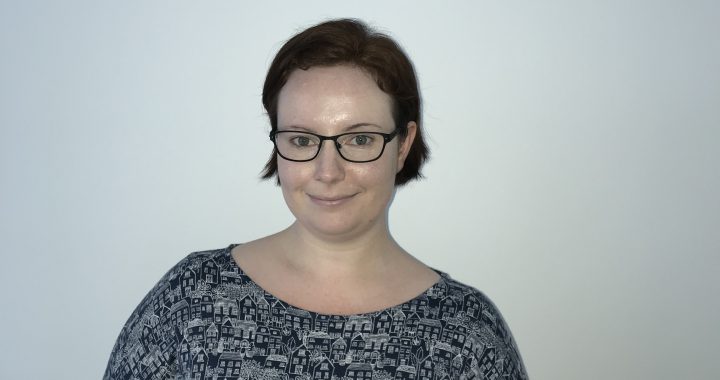My name is Hazel and I have been deaf since birth. I joined BSO in April 2018 as a Human Resources Assistant. Before this I was a full time mum to 3 children for 14 years until they got to an age where I decided to try to return to work.
I approached Action on Hearing Loss at a job fair to ask questions and before I knew it I was enrolled into the HSC Regional Organisations’ Disability Placement Scheme. (Action on Hearing Loss are one of a number of disability organisations who are linked with to recruit to the Placement Scheme.) I was lucky to be placed in a very welcoming team in HSCB; the placement gave me 6 months of really good experience of an office environment. I then applied for a job on HSC recruit and was successful in getting onto the Band 3 waiting list. A short time later I was delighted to be offered my current post in BSO.
I manage everyday life by either lip-reading, writing things down if I don’t understand the person or British Sign Language (BSL), which is the easiest form of communication for me.
Finding work when you have a disability is a struggle. When people find out I cannot hear they think “Oh she’s deaf, how will she cope?”, but ask yourselves how I cope every day? There is such a stigma with Deafness; it’s a hidden disability and people seem to be afraid of trying other ways of communicating, which can exclude deaf people from all aspects of life.
When I started my new job, I had mixed feelings as I was returning to work full time after being a full time mum for 14 years. I worried people couldn’t cope with my disability, that I wouldn’t be understood and not understand others, especially my boss as he is the one who would be giving me work to do and how could I do it If I didn’t understand him?
The first week in my job I attended some meetings. I had an interpreter, which made it easier, but I have to be honest, I came out of it feeling such a failure, feeling inferior to everyone and feeling incredibly stupid. This was because I felt overwhelmed going into a full time job and feeling like I was being thrown in at the deep end. I had to overcome being out of work for 14 years, my deafness and my depression.
My confidence has grown since then as I have learned things and picked the job up more quickly than I ever imagined and my line manager is extremely supportive.
Something to bear in mind in large groups when there is a deaf person present, whether at a coffee get together or in a meeting, is to try to not talk over each other, as a deaf person can only follow one person at a time.
I really enjoy my current work place; I have lovely colleagues and a very good manager. My boss has been very accommodating in providing me with all the help I need to carry out my role. I absolutely love the work that I do and love being busy, as there is nothing worse than sitting trying to put your day in.
I actually have two hidden disabilities; the second is Depression which I have lived with for over 20 years. I struggle every day with my Depression but with medication it keeps on a level peg to help me get through the day. People should never assume that a person who has a constant smile on their face is feeling ok inside.
From the day that I spoke to Action on Hearing Loss at the job fair, saying “I am only thinking about it” to 2 years down the line – look at me now! I am very proud to have successfully gained a full time job, after 14 years being a full time mum and having 2 disabilities. I do think sometimes, ‘am I dreaming?!’ as it all happened so quickly.
Please do not let your disabilities hold you back and Employers don’t be afraid to take a chance on an employee who has a disability. Ask your disabled employees questions about their disability – most will be happy to talk about it.
Finally, all I ask is that if you see a deaf person please do not feel you cannot approach us as we are human just like you, the only thing that makes us different is that we can’t hear.
Hazel


